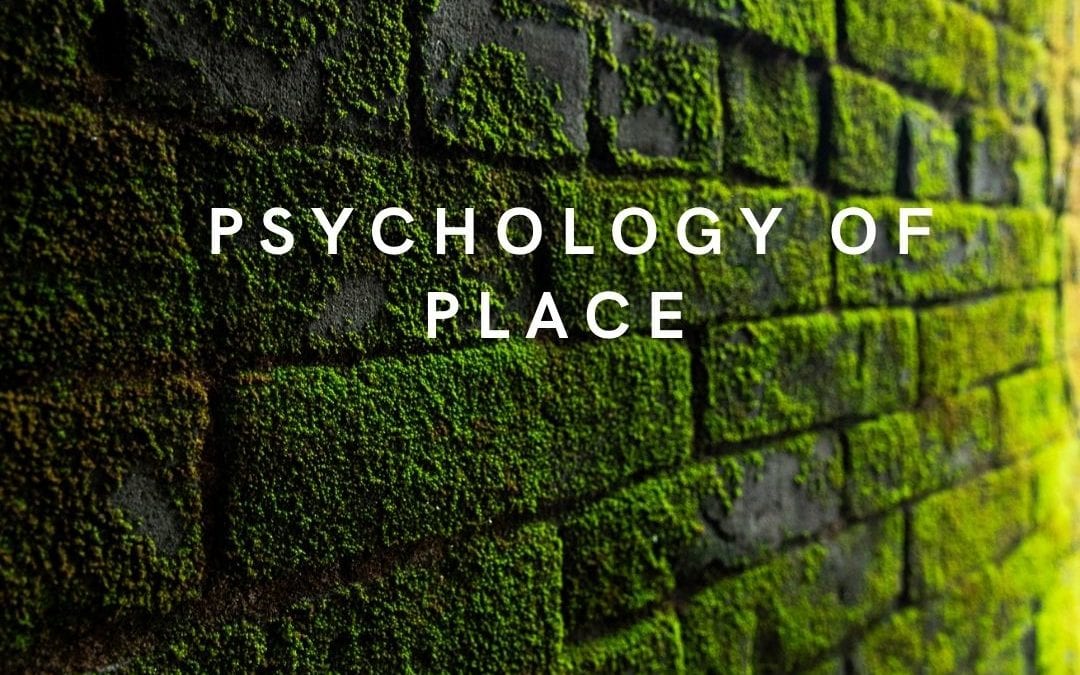This blog looks at the psychology of place and how it influences our behaviour, memory and social change. An earlier version of this blog was born from coursework for my Masters Degree in Interdisciplinary Psychology at Leeds Beckett University. During a lecture on the psychology of place, my tutor mentioned the word ‘arcade’ which transported me back to my childhood. My fascination for an arcade in my home town and the psychology of place has taken me on an interesting journey.
I was born in 1970 in a northern town in the UK and as a small child there were a limited amount of shops in the suburbs so we would regularly take the bus to town on weekends and one of my favourite places to visit was the arcade. This Victorian arcade had a beautiful mosaic glass tiled floor, a first floor balcony with wrought iron railings and a natural light ceiling. I was curious as to why I was so fascinated with the arcade which led to a conversation with my parents. They talked of different shops, a furniture emporium where newlyweds shopped and a jewellers where my father bought my mother an expensive watch when they were courting. My father told the story of how he used to steal dog biscuits from the sacks outside the pet shop when he was a boy. I started to remember the pet shop which boasted singing birds in cages and kittens in the window. There was the toy shop, a joke shop and as a teenager I remember browsing through the record shop. But as a little girl, my favourite reason for visiting the arcade was a 5p dapple grey horse ride sporting red reins.
Another ‘place’ in this journey was the town’s Market Hall which was built in 1930s and sadly demolished in 1992. This place helped me form part of my identity as a teenager and my love for Art Deco. I would meet friends in the basement café, watch interesting and sometimes marginal characters, buy cheap tacky jewellery and Christmas presents. I would listen to and browse records, enjoy the smells, wander and yet still be part of something. Interestingly, I often dream about the arcade and the Market Hall (which was sadly demolished to make way for the ‘white elephant’ that is now a Shopping Centre).
I wrote briefly about the psychology of place on the Psychologies Life Leap Facebook page and I had this lovely email from a subscriber who wrote: “The place I go to in my mind is a tree that was at my grandparents’ house. The tree was in a wood opposite their house. They lived in a park as they worked for a Dowager Duchess. The tree was so easy to climb and I would spend hours in that tree alone thinking. I loved it. I also think about the gardens, my grandad was a gardener and I was like his shadow. The smells of the potting shed, the tunnels, the soil and sound of the spade made me feel so comfortable and content. Every Saturday grandad would have the radio on in the garden, listening to the football. Now on a Saturday evening when my husband has the football results on TV, the scores and tones of the presenter takes me back. Due to my childhood memories of that garden, I have a love of flowers these trigger happy memories of that garden. Funny how moments are so triggering, my dad is a builder, the smells of a work van or sawdust makes me happy.” – Louise Steward, Life Leap Club subscriber
My personal love of nostalgia, the unconscious and the marginal, markets and arcades is not limited to my home town. I have fond memories of getting the bus to a nearby city on Saturdays and wandering around the markets, investigating the arcades, observing the quirky stall owners, and eating in cafes watching interesting characters. I am not really keen on large, bland shopping centres and supermarkets; to me they are just “nowhere spaces”. The shops seem all the same and maybe now with the decline of retail parks and shopping centres due to broader industry problems and online shopping due to Covid-19, we might be lucky enough to see the return of the arcade or will they disappear for ever? Bringing this blog back to my initial starting point – the arcade, I realise the development of huge shopping centres do not satisfy everyone’s psychological needs. They don’t encourage the social interaction and connection of a market or an arcade, and it raises the question whether they are adding to the caveats of social change by contributing to further loneliness and disconnection?
Gail Donnan
Quote supplied from Louise Steward
This blog also appears elsewhere (Psychologies Life Labs)

